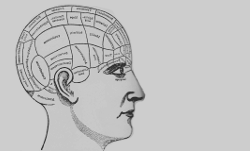Equipped to...Debunk Disorders
|
If this newsletter does not display correctly, read it online.
|
|||||||||||||||||||||||||||||||||
 |
|||||||||||||||||||||||||||||||||
|
Hi Visitor Equipped to...Debunk DisordersThis newsletter draws on "Understanding Mental Disorders", a comprehensive article found on my website. July is Mental Illness Awareness Month, and if you have a loved one suffering from a mental illness, you will know how stressful it can sometimes be. It is not unusual for family members to feel guilt and shame because they either think they are to blame for the development of the illness, or because they don’t know how to handle this kind of family crisis. A lot of people with a mental illness often feel isolated and lonely. It is therefore very important for them to have people close to them to talk to. If you have a good understanding of the possible causes of their illness, you will be better able to give them the support they need. In addition, you will find that that the more you understand about the illness, and the more familiar you become with its various manifestations, the less fearful it becomes, and the more positive your attitude towards the sufferer will be. |
|||||||||||||||||||||||||||||||||
|
What Causes a Mental Disorder?Unfortunately in most cases, we cannot say exactly what caused the disorder. Generally, the thinking today is that it is not just one factor that causes a mental disorder, but a number of factors working together. This explanation is called the Diathesis – Stress Model/theory and is commonly accepted to be the most comprehensive explanation of the cause of mental disorders. What is the Diathesis Stress Model?The model assumes that the onset of a certain disorder may result from a combination of one's biological disposition towards the given disorder, and stressful events. The model refers to predisposing, precipitating and maintaining factors combining to cause and maintain a mental disorder. Predisposing FactorsPredisposing factors make an individual vulnerable to a mental disorder. They do not cause the disorder. They include:
Precipitating FactorsPrecipitating factors are events in an individual’s life that s/he considers extremely stressful (beyond their ability to cope) and which trigger off the predisposing factors. Traumatic events and life changes can be such stressors. Maintaining FactorsThese are factors that maintain the disorder, for example: a lack of support, a lack of social and coping skills, or the stressor - which triggered off the predisposing factors - continues to worsen. Mediating FactorsThese actually serve as buffers between the predisposing and precipitating factors and may actually help to prevent the disorder, or make it less severe. An example is the person’s support system. If your loved one is suffering from a mental illness, it may help to discuss your feelings with a psychologist or other mental health professional. Contact me if you would like counselling. Image by: lovelornpoets Have something to say?Has your life been affected by someone you love suffering from a mental illness? Are you coping? How has the experience changed you? Please share your story. What's Next?Watch out for my next newsletter where you will be Tip! Save these newsletters and accumulate the series on Putting the Logical Back into Psychological. Regards
|
|
||||||||||||||||||||||||||||||||
|
More About Me
|
|||||||||||||||||||||||||||||||||
|
The email was sent to: |
|||||||||||||||||||||||||||||||||



